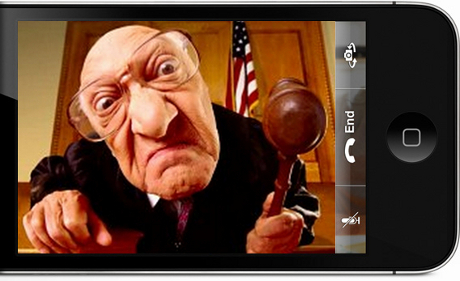Apple and AT&T: Time to Wake Up and Smell the Class Action


A federal judge has thrown down the gavel at Apple and AT&T and has allowed a class action lawsuit to proceed against the two companies. What are the short-term and long-term implications?
As with Karma, in the world of litigation, what goes around, comes around.
Apple has been extremely busy in the last year with its legal attacks and defense against HTC and a number of other firms (most recently NTP) which have threatened its lofty position in the smartphone market, particularly as it relates to patents and other intellectual property held by the company.
Many believe that with its huge war chest of approximately $25 billion and its army of high-paid lawyers that the company is impervious to just about any legal threat from a combatant of any magnitude, as long-term litigation is costly and difficult to stomach.
However, this time Apple may have run out of luck. While everyone else was keeping an eye on Spain and the Netherlands and blowing their Vuvuzelas this last weekend, a federal judge in California decided that several civil lawsuits filed against Apple and AT&T since 2007 -- which address a number of antitrust concerns -- could now be consolidated into a single class action in federal court and could proceed accordingly.
Who is now considered a plaintiff in this new class action suit? Well, that would be:
"All persons who purchased or acquired an iPhone in the United States and entered into a two-year agreement with Defendant AT&T Mobility, LLC for iPhone voice and data service any time from June 29, 2007, to the present."
In other words, anyone who bought an iPhone since day one.
I am not a lawyer (IANAL) and do not even pretend to be one, but there are a number of issues here that are going to be brought into the forefront as a result of this lawsuit which in my opinion have screwed up the wireless industry in the United States for years and have begged to be remedied.
Also Read: $99 iPhones will not improve the wireless customer experience (June 2009)
The first is the issue of carrier/device lock-in, and is what the main thrust of the new class action will be about.
The plaintiffs contend that even though they entered a two-year agreement when they bought their iPhones, they were really forced into a five year agreement for voice and data services on their devices without their consent, and Apple and AT&T violated the Sherman Antitrust Act, the Magnuson-Moss Warranty Act (15 U.S.C. §§ 2301 et seq) and the Computer Fraud and Abuse Act (18 U.S.C. §§ 1030) in the process.
After two years, they could not unlock their phones and take them to another compatible carrier, such as T-Mobile.
The plaintiffs also contend that Apple monopolized 3rd-party applications for the iPhone (this presumably was before Apple introduced the app store in 2008, approximately a year after the product's launch) and that the iPhone became unusable if a customer had unlocked it for use on another service provider (such as T-Mobile).
While a class action is a significant litigation in and of itself and the outcome has potentially serious implications for Apple and AT&T, there is certainly the possibility that this could now expand into a much larger federal case much like DOJ vs. Microsoft from the previous decade, especially since the US Justice Department has reportedly been investigating Apple regarding monopolistic practices with iTunes and the iPhone 4 SDK.
Regardless of which venue the trial ends up in -- and how many aspects of Apple's business and the wireless carrier's business that it eventually touches -- one can hope that this will result in providing increased freedom of choice for the consumer.
Carriers should not be allowed to have exclusive agreements with handset makers, and customers should be able to easily migrate from one carrier to another with a compatible network with their handsets.
While it is likely that the iPhone will probably end up on Verizon with a new device compatible with that network sometime in 2011, there is no reason why the phone should also not be offered up on Sprint or T-Mobile as well. The same could be said of the iPad, which uses a modular PCB design for the 3G version and could easily be used on T-Mobile's, Verizon's or Sprint's networks provided a SIM and/or compatible transceiver daughterboard is swapped out.
Most importantly, Apple (and any handset manufacturer) should not be able to monopolize the sale of applications for its handsets or tablet computers. While the complaint presumably applies to 1st generation iPhones that only had pre-loaded Apple applications, it could be argued that the App Store "Walled Garden" where Apple fully controls what Apps can and cannot be installed on an iPhone is also a form of monopolization and could be included/expanded as part of the class action or a larger government legal venue, such as the DOJ itself.
Wherever this class action goes, I'm very interested to see how it ends up. Do you think it will be beneficial for consumers and carriers or will Apple and AT&T continue to take unfair advantage of their customers and bully software developers after all is said and done, when the litigation is finished possibly years from now? Talk Back and Let Me Know.